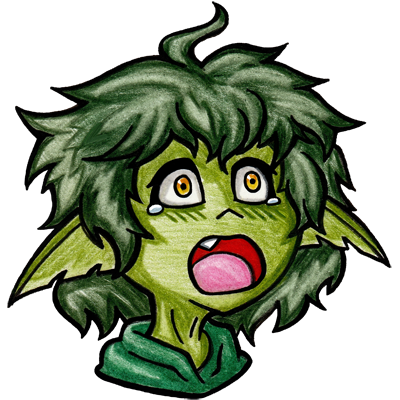I would say that the main thing that “sucks” about DnD is that DnD has often been portrayed as appealing to the kind of nerdy rules-lawyers that like to argue “hey, the rules say (x) so I can do (ridiculous thing)” and end up in a big argument with their DM about what the rules do and do not say. A lot of my groups have been like this, and it’s okay for a game to cater towards that specific playstyle.
I’m not trying to make a value judgement whether this is a good or a bad way to play a game. It’s also just one of many ways to play the game. You can (and given the stuff I talk about below, perhaps you should!) play it differently, but regardless it is quite a common table-style that the various holders of the DnD IP have encouraged throughout its history.
What is a problem is that this kind of playstyle can often be quite acrimonious, especially when combined with adversarial DM styles, and arguments can get rather heated and angry. I’ve heard many a tale of a group that split up over a rules argument that left everyone at the table too angry and frustrated to stick together as a group.
DnD 4e made huge strides to mitigating these problems by having a whole lot of very tightly defined keywords and language which could almost always be resolved into a solid, consistent, official ruling. You had to do a lot of work to learn exactly how the language was being used, but it was possible to get a table of six rules lawyers to sit down and develop a shared understanding of what the rules meant - and know there was a right answer to any specific question.
DnD 5e has taken huge strides to re-introducing the uncertainty in the system, by very loosely defining how things work, or not providing official answers at all, preferring to go with a “the DM will make a ruling” approach. This can be a nightmare for groups that like to have a defined, correct, answer to things.
Now of course, many alternate systems take this stance as a given “The rules are a set of loose guidelines, the GM will run the game and just make up a lot of the rules on the spot.” - and this has a lot of advantages. It makes it easier to write systems because you don’t have to be completely rigorous, and it leaves the GM with the freedom to run the game they want, and it encourages players to not get hung up on the details - all healthy…
But DnD is in the unique position of already having proven with 4e that it can nail down a rigorous set of principles and a style guide that leaves ambiguity behind, courting a whole section of RPG players who desire that, and then retreating from that position with a new, fuzzier, system document.
Why is this a “problem” for DnD specifically? Well… I find it’s extremely common on internet forums like this one for a person to say “I was in a game and (x) happened” and then immediately three different arguments spawn, running in separate directions, all founded on the premise that the poster is playing the game wrong or doesn’t understand the rules. It’s exhausting.








I’m not seeing any mention of it, but I think a lot of people might be interested in Break! - it’s specifically aiming to make a game that has the vibes of an “adventure of the week” system, where you learn of an ancient ruin, gear up, venture through the wilderness, explore a crumbling tomb for loot, then get back in time for dinner and an ale. - Basically I’m saying that the game is specifically designed to try and tell the kind of stories that DnD is designed for.
Where break differs from DnD is in it’s approach to mechanics. Downtime, journeying, exploring an adventure site, and fighting are all their own small, light subsystems of rules, so there’s clear guidelines for how to run each of them, and they’re largely aimed at highlighting the cruical and interesting moments for each of those activities, while quickly glossing past the faff and monotony of what lies between.
I’ve lost track of the number of DnD campaigns I’ve played where the DM didn’t really have a clear framework for what to do on a long journey, and resorted to just tossing a couple of random encounter fights in because it “felt necessary”, but they never felt like they advanced the story or contributed anything interesting to the game.
It’s also a game you can recruit random NPCs and the like to join you and follow you around, and when they run out of HP you check to see if you remembered to give them a name. The world knows that characters who have their own names are important to the story, and characters who are just “that random bandit mook who surrendered and we brought them along” are not. If the character doesn’t have a name when they hit 0hp, they die on the spot.
Oh, and fights take 10 minutes, rather than 2 hours - so you can have one in the middle of a session without it becoming the whole session. Yum.